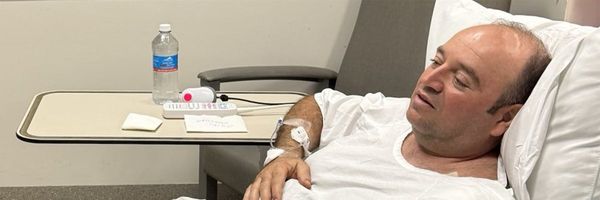
Medical researcher Nathan Bartlett will be named as Newcastle's 2024 Citizen of the Year for his work on respiratory infections, including COVID-19.
Professor Bartlett, a virologist, will receive the honour at a City of Newcastle ceremony on Monday.
Newcastle lord mayor Nuatali Nelmes said the selection recognised his "ongoing commitment to improving health outcomes for others".
"Professor Bartlett's pioneering medical research will save lives," Cr Nelmes said.
She said the gong was a "fitting honour" for more than 20 years of "service to medical science and his care and commitment to the wellbeing of our community".
He was also dedicated to "teaching and mentoring the next generation of medical professionals and biomedical researchers".
Professor Bartlett, of University of Newcastle and Hunter Medical Research Institute, led pre-clinical development of a nasal spray that aimed to stop respiratory viruses in the nose.
The US Department of Defence has provided about $13 million to further develop the drug, including preparations for large-scale manufacturing.
Research showed the drug to be effective against rhinovirus, influenza and COVID-19. More clinical trials will be done on the drug this year.
Cr Nelmes said Professor Bartlett's work was vital, particularly as "new variants of COVID-19 continue to make people very unwell".
In reflecting on the early stages of the pandemic, Professor Bartlett said it was "action stations" and thoughts of "what can we do to participate in the response".
"We focused on developing a treatment that might be useful later in this pandemic or available for the next one," he said.
Professor Bartlett became a voice of reason for the Hunter, sharing facts about COVID while misinformation circulated on social media.
"There was a lot of public speaking and communication to help the public understand the pandemic and rollout of vaccines and antivirals," he said.
"One of the reasons I got into this area of research was because highly transmissible disease-causing viruses are a threat to our way of life."
He recalled widespread fear around the globe, as the pandemic emerged.
"When the first reports came out, you got a bit of a chill down your spine thinking 'could this be the big one'.
"We had SARS in 2003, which was controlled by effective public health measures. We had swine flu in 2009, which again was reasonably well controlled.
"They indicated that these viruses are out there. It was only a matter of time before one took off and, of course, COVID did."
The pandemic changed the world's approach to respiratory viruses, with billions put towards developing vaccines and treatments quickly.
Awareness rose about the need to stop transmission, particularly for the most vulnerable.
Professor Bartlett said a better understanding emerged of "who is in your community and the impact a virus has".
"What does citizen actually mean? It means being part of a community."
He said most diseases were often "very personal".
"But respiratory viruses are community diseases. In the case of a pandemic, that community is global," he said.
"Everyone is affected, everyone is susceptible to infection. But there are those who are more likely to get more sick and die."
He said COVID had "taught us that viruses affect not only ourselves".
"The way we responded to it was very different to the individual idea of just soldiering on.
"Hopefully this will determine how we behave, as we continue to live with COVID."







